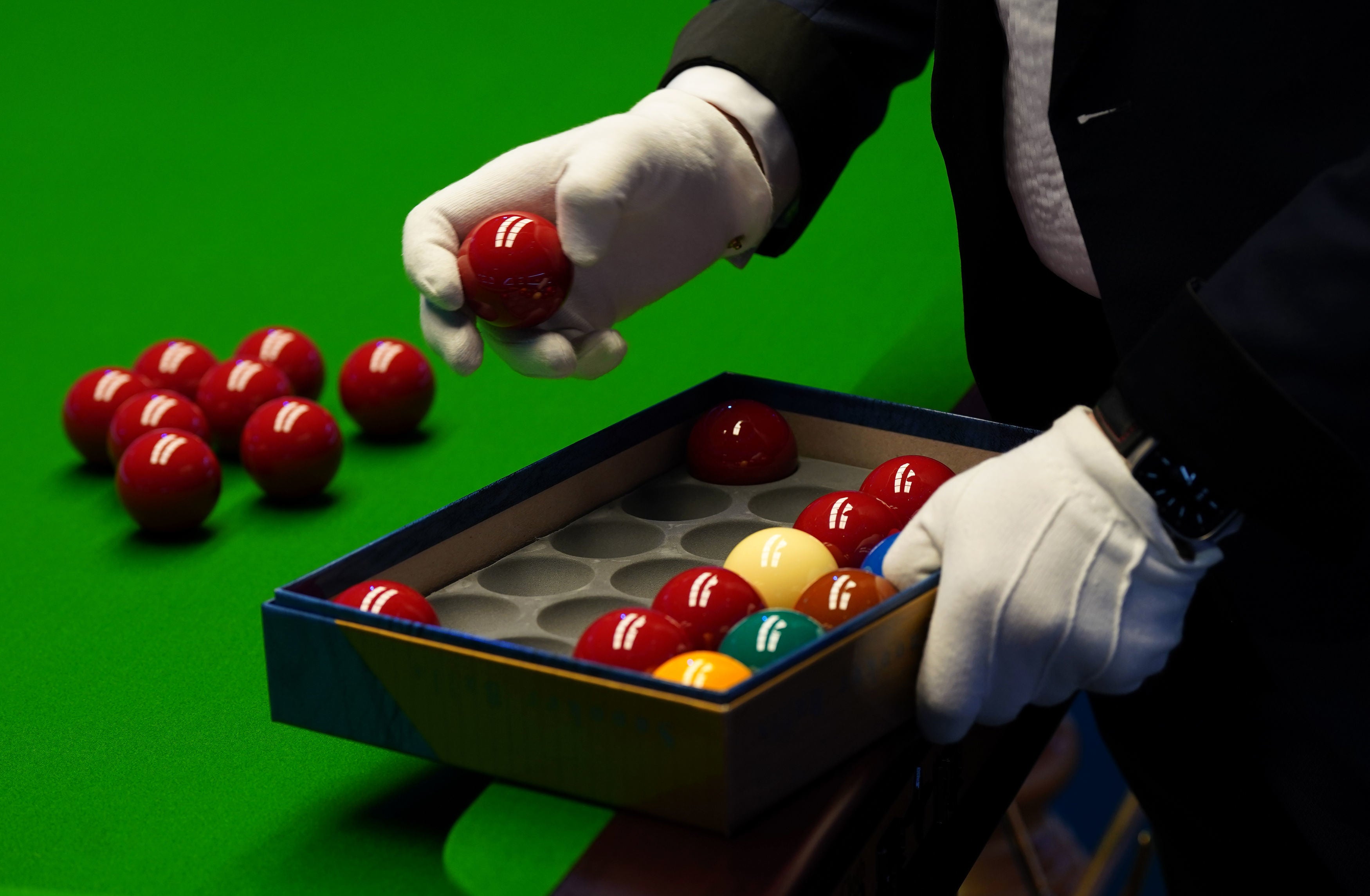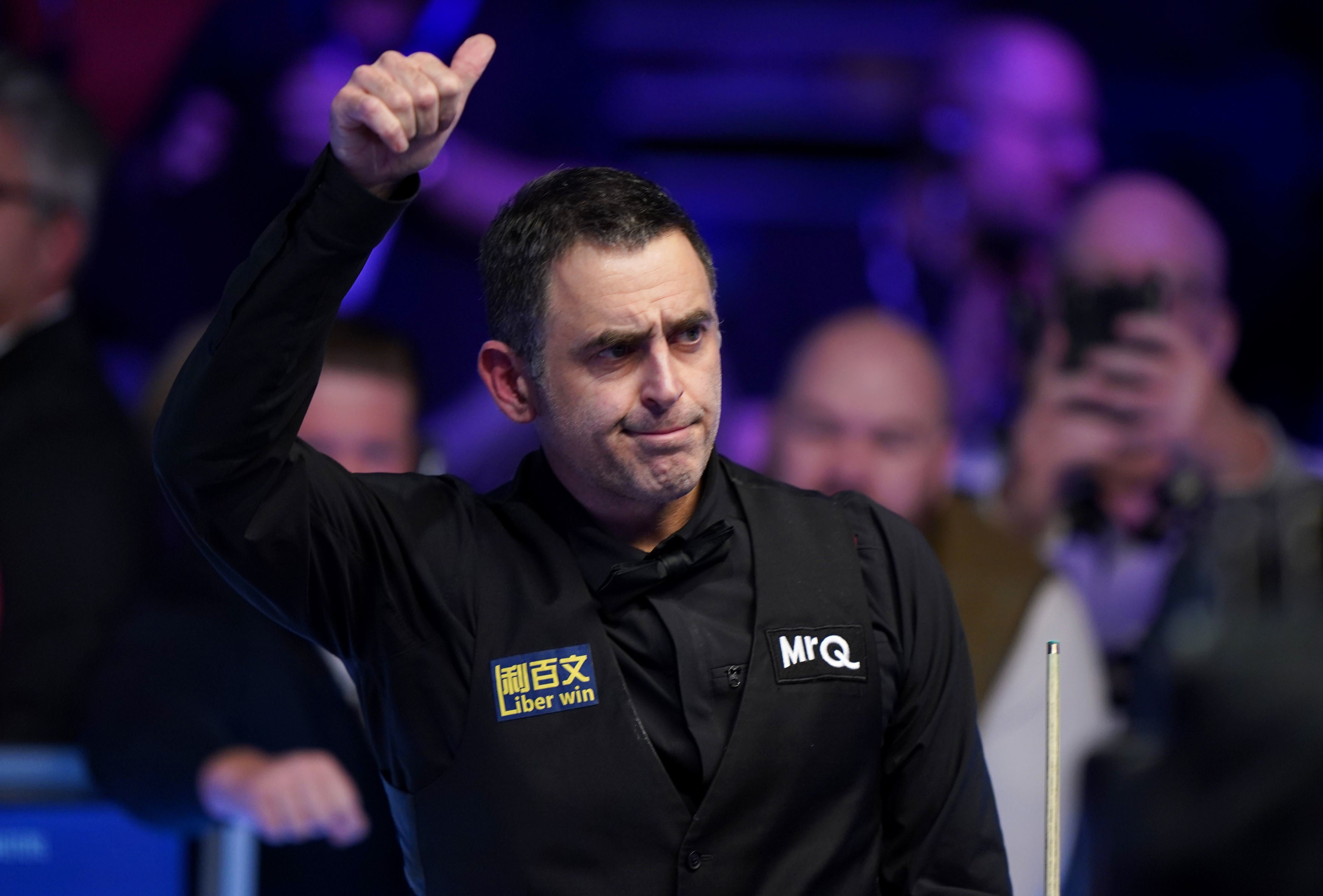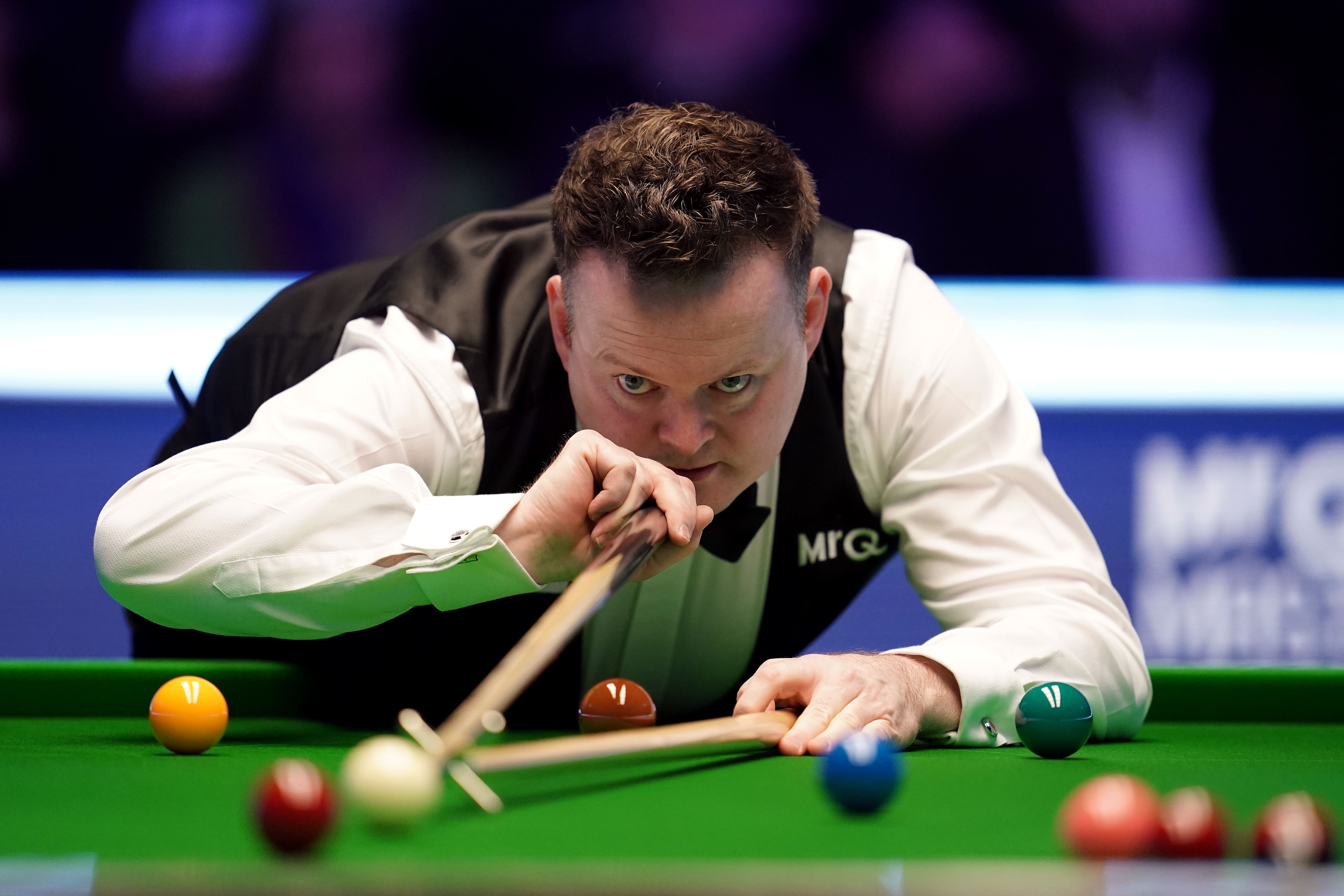A golden ball and a 167 break: Saudi Arabia’s mad snooker gimmick is a step too far
Saudi Arabia’s latest sportswashing project, a new snooker tournament in Riyadh, will have a 20-point golden ball added to the table in a ludicrous gimmick that is the sign of a desperate sport, writes Luke Baker


Your support helps us to tell the story
This election is still a dead heat, according to most polls. In a fight with such wafer-thin margins, we need reporters on the ground talking to the people Trump and Harris are courting. Your support allows us to keep sending journalists to the story.
The Independent is trusted by 27 million Americans from across the entire political spectrum every month. Unlike many other quality news outlets, we choose not to lock you out of our reporting and analysis with paywalls. But quality journalism must still be paid for.
Help us keep bring these critical stories to light. Your support makes all the difference.
The announcement at the end of January that Saudi Arabia would be entering the snooker fray as the latest phase of its sportswashing project didn’t come as any great surprise and the fact that the sport is welcoming Saudi investment with open arms is even less shocking.
With its fingers in an almost exponentially increasing number of sporting pies – from F1 races to tennis tournaments, boxing super-cards to lucrative horse races, purchases of Premier League clubs and revolutionary golf tours, and with global tournaments such as football World Cups and Asian Games on the horizon – the country shows no sign of slowing down in its concerted attempt to distract from alleged human rights abuses.
Snooker is simply the latest (fairly small) piece of the jigsaw; a full ranking event in the Gulf state has been mooted for a couple of years, with an official announcement made last month for a tournament featuring all 128 professional players to take place next season. For a niche sport fighting for both coverage in a congested media landscape and desperately needed investment from external partners, a Saudi link-up is almost inevitable – moral quandaries be damned.
As Peter Frankental, Amnesty International UK’s economic affairs director, opined: “It was just a matter of time before Saudi Arabia’s huge sportswashing machine sucked in snooker along with almost every other major world sport. If the likes of Ronnie O’Sullivan and Judd Trump play in Riyadh, they shouldn’t hesitate to speak out about human rights.”
Given Saudi Arabian influence in other sports, the genie has long since escaped the bottle and there’s no putting it back in. Thus, it is probably unfair to expect snooker to take a financially ruinous stand for virtuous reasons when almost no others have, although it would be nice if at least one sport did eventually opt for a principled rejection of the money to avoid a sportswashing clean sweep.
But while the Saudi-snooker relationship itself is unsurprising, the first event confirmed to take place in the country did raise eyebrows, due to an absurd gimmick.
In case you missed it, the catchily named Riyadh Season World Masters of Snooker will be held in Riyadh this week, from 4-6 March, and feature 10 of the best players in the world (as well as two wildcards from the local region), including the likes of O’Sullivan, Trump and Luca Brecel, with a prize pool of £785,000 (£250k of which goes to the winner).
So far, so typically lucrative exhibition. But hold on – things are about to get weird.

“Each game will be played under World Snooker rules and regulations but with the introduction of an innovative new concept, a 23rd ball known as the Riyadh Season ball,” explained the press release from snooker’s governing body, WST. “This gold ball will be worth 20 points and can only be potted once all other balls have been successfully cleared from the table if a player is on a maximum break to make it 167.”
Belatedly, details of exactly how the golden ball will work have been released by WST. It will begin each frame in the middle of the baulk cushion and will be removed from the table by the referee as soon as a maximum 147 break is no longer possible (for example, if a player pots the opening red followed by a colour other than black). Accidentally potting the golden ball or hitting it before striking the intended object ball will result in four penalty points. It can, however, be moved if struck after hitting the desired object ball during the course of the frame (although this is unlikely given it only remains on the baize when a 147 is possible and the player will be potting reds and blacks down the other end of the table).
If a 147 is completed, the player will then have to play up the table for the golden ball off the final black and try to pot it to make a “historic” 167 break and earn themselves $500,000.
Let’s be clear, having an additional, unpottable ball on the baize throughout the game, getting in the way and adding no value is, frankly, a complete waste of time, making things less – not more – interesting. It demonstrably makes the mechanics of the sport worse.
Maximums are rare enough (there have been only 200 official 147s in the entire history of the sport) that the prospect of an additional 20-point gold ball afterwards is almost entirely moot. And due to their scarcity, seeing someone make a maxi, or even come close to doing so, is special enough already without a painfully contrived gimmick being added. Watch the atmosphere created by and the reaction to either of the 147s made at January’s Masters at Alexandra Palace by Ding Junhui or Mark Allen if you need proof of just how much buzz they already create.
Presumably, Saudi Arabia wants to be able to boast about a point of difference for their event, market the tournament around a possible “167 break” and, hopefully by the end of the three days, be able to claim the “highest break in snooker history”. Not that a break made under these gimmicky, non-official conditions would count in the record books.
This is one ludicrous suggestion too far. Where will it stop? Why not make the bullseye worth 100 points in darts? Perhaps an ace in tennis counts for two points, to stop all those pesky rallies spoiling the gimmicky fun that fans clearly want...
This 20-point golden ball nonsense isn’t the first time a snooker promoter has tried to change the basics of the game. A short-lived experiment in 1959 saw the introduction of a “Snooker Plus” tournament, which included two additional colours, an orange ball worth eight points and a purple worth 10, which raised the theoretically available maximum to 210. In 2018, another promoter suggested the addition of a purple ball with a value of eight points be added towards the end of a frame so that a “super-maximum” 155 would become possible.

These suggestions were rightly dismissed as being unserious. What a shame the authorities weren’t so clear-eyed this time.
Shaun Murphy, who can always be relied upon to toe the party line and is one of the 10 elite players selected for the invitational event, rushed to the defence of the new gimmick by comparing it to the Snooker Shoot-Out ranking event – a quickfire version of the sport with a shot clock and minorly tweaked rules that has become a generally well-loved, one-off breath of fresh air in the calendar comparable to Twenty20 cricket.
“It was heresy when the Shoot-Out was brought in as a ranking event – people were nearly out with torches on the streets,” exaggerated Murphy. “But I haven’t met a single person who has been to the Shoot-Out and not enjoyed it. You should never criticise something unless you’ve tried it. It’s just something different and it’s not the first time the sport has tried new ideas.”
There is something to be said for the sport bursting out of its sometimes fusty old bubble to attract new fans but let’s not pretend that a 20-point, golden ball gimmick more suited to a light entertainment TV show is the answer to snooker’s problems. It’s simply a sign of a desperate sport going too far.
This article was originally published on 19 January, 2024
Join our commenting forum
Join thought-provoking conversations, follow other Independent readers and see their replies
Comments